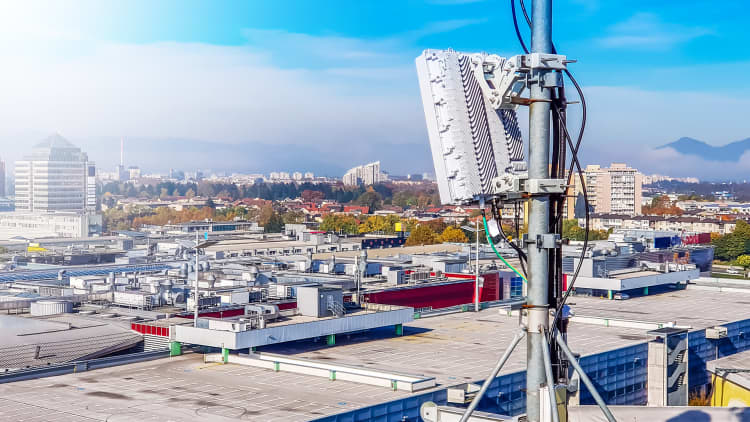The U.K. government warned on Thursday Huawei's telecommunications equipment raises "significant" security issues, posing a possible setback to the Chinese tech firm as it looks to build out 5G networks.
In 46-page report evaluating Huawei's security risks, British officials stopped short of calling for a ban of Huawei's 5G telecommunications equipment. But the assessment cited "underlying defects" in the company's software engineering and cybersecurity processes, citing "significantly increased risk to U.K. operators."
The findings give weight to warnings from U.S. officials who have argued Huawei's networking equipment could be used for espionage by the Chinese government. Huawei has repeatedly said it does not pose any risk and insists it would not share customer data with Beijing.
In a statement Thursday, Huawei said it takes the U.K. government's findings "very seriously."
"The issues identified in the OB (oversight board) report provide vital input for the ongoing transformation of our software engineering capabilities," a Huawei spokesperson said.
The U.K. government report rebuked Huawei for failing to address security concerns raised in previous assessments, saying the Chinese firm has not taken steps to address underlying defects in its software engineering. The report was conducted by the Huawei Cyber Security Evaluation Centre Oversight Board, a watchdog set up in 2010 to monitor Huawei's security risks.
"The Oversight Board can only provide limited assurance that all risks to U.K. national security from Huawei's involvement in the U.K.'s critical networks can be sufficiently mitigated long term," it concluded.
Huawei is the world's biggest telecommunications equipment maker and has been under intense scrutiny for its role in building out 5G networks around the world. 5G is a fifth-generation wireless network that promises faster speeds and lower latency, increasing download speeds for consumers and potentially transforming industries like the internet of things and self-driving cars.

The U.S. and China are racing to implement 5G technology, and American intelligence officials have urged allies to boycott Huawei from providing infrastructure for the new networks citing security risks. The U.S. has also accused Huawei of violating American sanctions on Iran and stealing trade secrets, which the company also denies.
Experts have been skeptical about Huawei's assurances that it isn't a security risk, pointing to Chinese laws that allegedly mean every domestic company is legally mandated to assist the country in intelligence gathering if Beijing requests it.
The new U.K. government said it "does not believe that the defects identified are a result of Chinese state interference." Instead, it blamed "poor software engineering" and a lack of "cybersecurity hygiene." In other words, Huawei's networks could be exploited by a "range of actors," not just the Chinese government.
Last year, Australia banned Huawei and ZTE from selling 5G equipment in the country, while other countries are weighing similar measures. In an interview with CNBC on Thursday, former Australian Prime Minister Malcolm Turnbull said the decision was based on "hedging against future risks" on the high-speed networks.
So far European countries have not heeded Washington's request to outright ban Huawei. This week the European Commission said EU countries will be required to share data on 5G security risks but did not single out concerns about Huawei. German Chancellor Angela Merkel said earlier this month the country would set its own security standards on the new networks.
Telecommunications operators like Britain's Vodafone have warned excluding Huawei could slow down the rollout of 5G. The British firm relies on Huawei to supply equipment in many of its networks.


